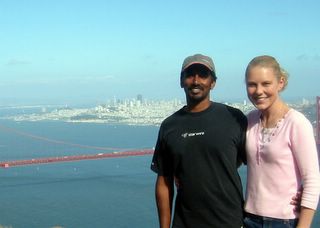Money or Time
There is a saying, "Put your money where your mouth is." That is to say, prove you mean your cheap words by sacrificing a valuable resource. In thinking about how this applies to charity or "good works," it sometimes seems easy to give $20 here or there to a cause that I support. Certainly giving money is critical - people and organizations need money to meet practical needs, but I would add, "Put your time where your money is." For instance, if I saw someone alone and hungry on the street, which is easier to do - hand them $20 or spend 2 hours talking with them and getting them some food? Both are good and require sacrifice, but for most people that I know, 2 hours would be a much taller order.
Time is the most valuable resource anyone has. Bill Gates and the homeless beggar on the street both have exactly the same number of hours in a day. No amount of money can buy more time. In fact, the more money people have, the more they value their time. So it seems that time spent is the truest indicator that someone means what they say.
Time is the most valuable resource anyone has. Bill Gates and the homeless beggar on the street both have exactly the same number of hours in a day. No amount of money can buy more time. In fact, the more money people have, the more they value their time. So it seems that time spent is the truest indicator that someone means what they say.


